Pillar Centre is Holding an International Webinar about the Crisis of Education and Illiteracy in Developing Societies
Pillar Centre for Conflict Resolution, International Arbitration and Scientific Research- London, in partnership with Polytechnic University- Palestine, Kassala University- Sudan, Al-Aqsa University- College of Mass Communication- Palestine, Sudan Open University- Sudan, Wasit University- College of Basic Education- Iraq, Maysan University- College Basic Education- Iraq, Sumer University- College of Education, Dhi Qar University- College of Physical Education- Iraq, Isra University- Palestine, İSTANBUL KÖPRÜLÜ EĞİTİM Foundation- Turkey, and Biosciences Research Support Foundation (BRSF)- Nigeria held the International webinar “Crisis of Education and Illiteracy in Developing Societies” on Monday, 24/01/2022, on the occasion of Arab Literacy Day and World Education Day. Many experts, professors and researchers from many Arab countries and the African continent participated in the webinar, to shed light on the increasing education crisis in many countries and societies around the world and contribute for solutions to curb this huge phenomenon, by benefiting from the experiences of many foreign and Arab countries.
Dr. Nermin Majid, P.h.D in Educational Technology and the General Director of Pillar Centre welcomed the Audience and emphasized the role of researchers, educators, teachers and decision makers in the development of education. She, in turn, cited countries like Malaysia that was able, with education only, to move from poverty to development, growth and giving, which carries a strong message for all of us that we have no way out in this world except by following the path of education.
While the Co-chair of the session, Prof. Manal Khairy, professor of economic and financial sciences curricula and strategies at Helwan University- Egypt, praised that education is a national security issue for Arab societies and that there are no existence to knowledge societies and achievement of sustainable development goals without investing in human capital through high-efficiency education.
Also confirmed by Dr. Mamo Othman, Dean of the Institute of Psychotherapy and Psychological Trauma at the University of Duhok- Iraqi Kurdistan, that education is one of the most important pillars of the development of any nation, and that neglecting education is the beginning of the end of the destruction of any country and their institutions. He prompted females’ education because of their leading role in raising the family and raising the level of the state to civilized standards to be proud of. He cited what happened with Japan and Germany after World War II, where each of them was destroyed with its institutions and infrastructure, but they were able to advance to the highest levels of development at all levels when they were interested in education and the use of global expertise and dependence on their human potential.
The discussion of the session was opened by Prof. Osama Farrag, Professor and Head of the Department of Adult Education and Continuing Education at Cairo University- Egypt, who indicated that the interest in the issue of illiteracy is due to the fact that the human being is the maker of development and that the best investment is in people, as Alfred Marshall said, and if illiteracy rates are in decreasing, the number of absolute illiterates is in absolute increasing. He also added that there are several factors behind the illiteracy crisis, including social, economic, educational and personal factors.
In addition, Prof. Muhammad Sayed Ahmed, Doctor of Modern History at King Abdulaziz University- Saudi Arabia, talked about education in the Kingdom and its history, and about the emergence and role of the Ministry of Education in opening Saudi government schools, spreading education and entering foreign languages into the education process. He cited the role of Al-Falah schools in Jeddah and Mecca in literacy and education dissemination.
While Prof. Raed Al-Rikabi, Dean of the Faculty of Education at Sumer University- Iraq, also spoke about the role of the conditions that Iraq has experienced over the years, which greatly affected education, and become worse after the Corona pandemic. He also talked about the financial obstacles that affect the spread of illiteracy and the spread of early marriage in Iraq, which plays a major role in this regard. He, eventually, called for free education, stationery, and an improvement in the quality of schools and infrastructure.
In turn, Prof. Nani Nabila, professor in Organizational Psychology at the University of Blida- Algeria, presented a research paper entitled of: “Education Makes Our Crisis,” where she confirmed that educational systems in their current form are the ones that create crises, whether at the individual, social or economic level because it produces exhausted individuals who become burden on the economy and society during and after their schooling. And that the problem is not illiteracy, but in the education itself where students need for sound education and a sound educational system, citing the forms of schools in Arab countries that resemble military camps. She also described the square-shaped rooms “classes” and their effect on the psyche of the child, in addition to the positioning of chairs and students’ seating, which negatively affects the intellectual and understanding level of the students.
Dr. Ghassan Harb, the Dean of the Faculty of Journalism and Media at Al-Aqsa University- Palestine, added that education crisis in the Arab world and its future dangers. He said that the illiteracy rate in Arab societies is 21% and is likely to increase as a result of great external influences such as epidemics, climate, extreme poverty and acts of violence and extremism. He also explained that the problem of education in Arab countries lies in quality and not in spending, as Arab countries spend on education amounts no less than America and the Scandinavian countries. Despite that, there is a continuous decline due to the stereotyping of education.
As for Prof. Badr Nasser Hussein Al-Sultani, Director of the Babylon Center for Cultural and Historical Studies at the University of Babylon- Iraq, he said that education carries the members of society to an advanced stage and gives them the strength to build their future opportunities in life and provides them with sufficient knowledge to face problems and be able to solve them. Where it helps the person to know everything about the future and determine experiences accordingly, and that illiteracy crisis protects the members of society from all this. And that illiteracy eradication is part of the policies and programs that promote equality in all aspects of life and its elimination is part of the development structure at the global level.
Prof. Nadin Abu Hamdan, a social researcher in the Sociology of Culture, Knowledge, Educational Field, and Digital Sociology at the Lebanese University – Lebanon, said that illiteracy strikes hard at the roots of Arab societies as a foundation for subsequent crises. She also stressed that the formation of scientific knowledge is an urgent need for scientific production because education aims to change and modernize the society.
Dr. Abu Bakr Yaqoub Luqman, Head of Curriculum and Teaching Methods Department at the Faculty of Education at the University of Khartoum- Sudan, stressed that the illiteracy crisis is no longer represented in the lack of reading and writing alone, as the most dangerous types of illiteracy are illiteracy of education with a superficial dose of education so as not to graduate active members of society. Where developing countries suffer and are unable to free themselves from. He added that academic illiteracy is another scourge that has its roots in developing societies. And that we have to think outside the box in order to be able to bring about the desired change. He brought up what Albert Einstein said: We will not be able to solve the chronic problems that confront us with the same mentality that created those problems.
Finally, Dr. Najwa Taj Al-Sir Abdullah, Assistant Professor in the Department of Educational Sciences at the University of Kassala- Sudan, addressed the crisis of visual illiteracy, which affects all developing countries, as ignorance in it affects education, especially at the present time and the spread of the Corona epidemic, which is considered the era of the image, that is, the ability to read and write the visual language and convert it to a verbal language or vice versa. She emphasized that the visual illiteracy crisis is a real crisis in light of the revolution that surrounds us in the field of digital technology.


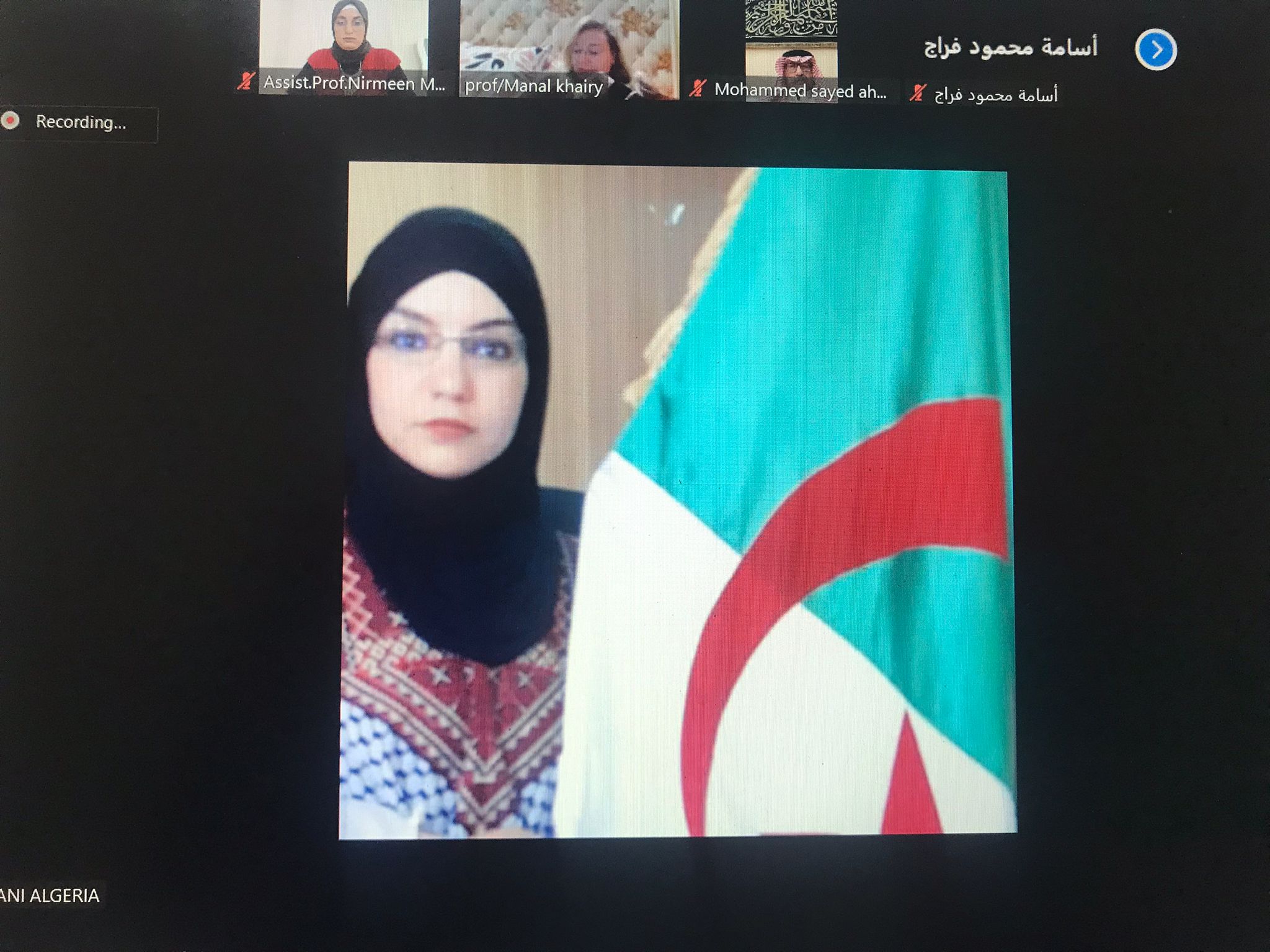
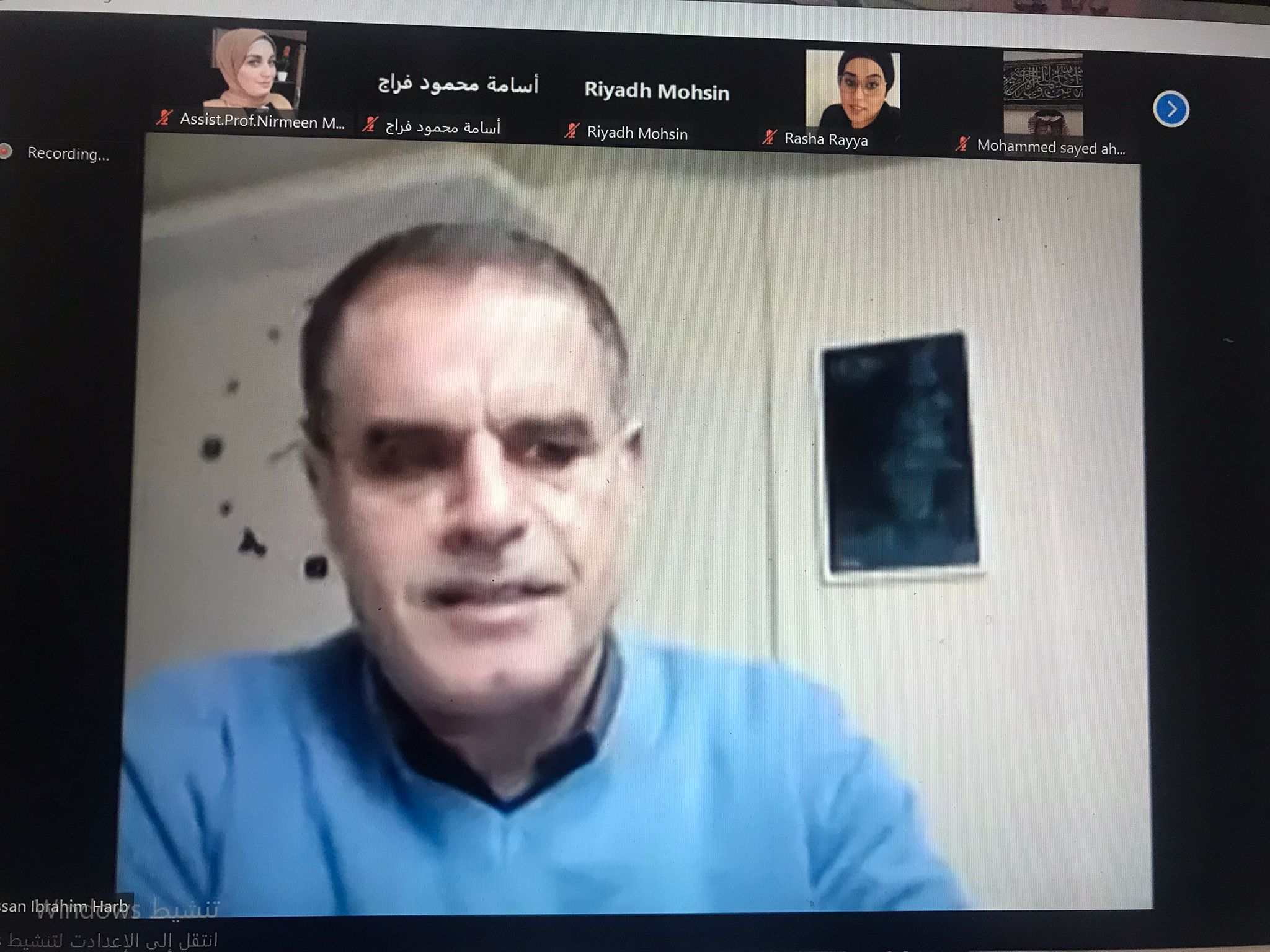
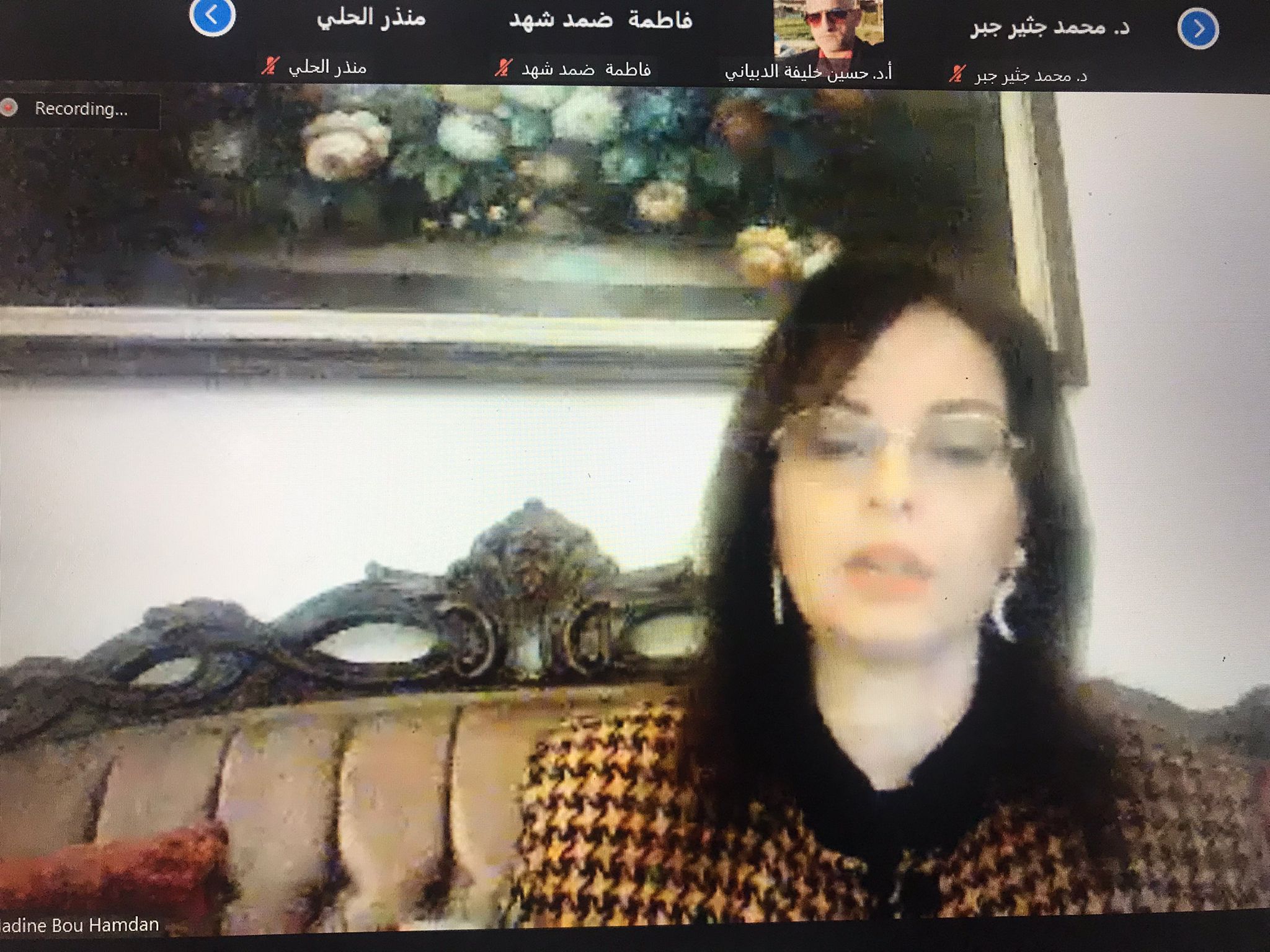
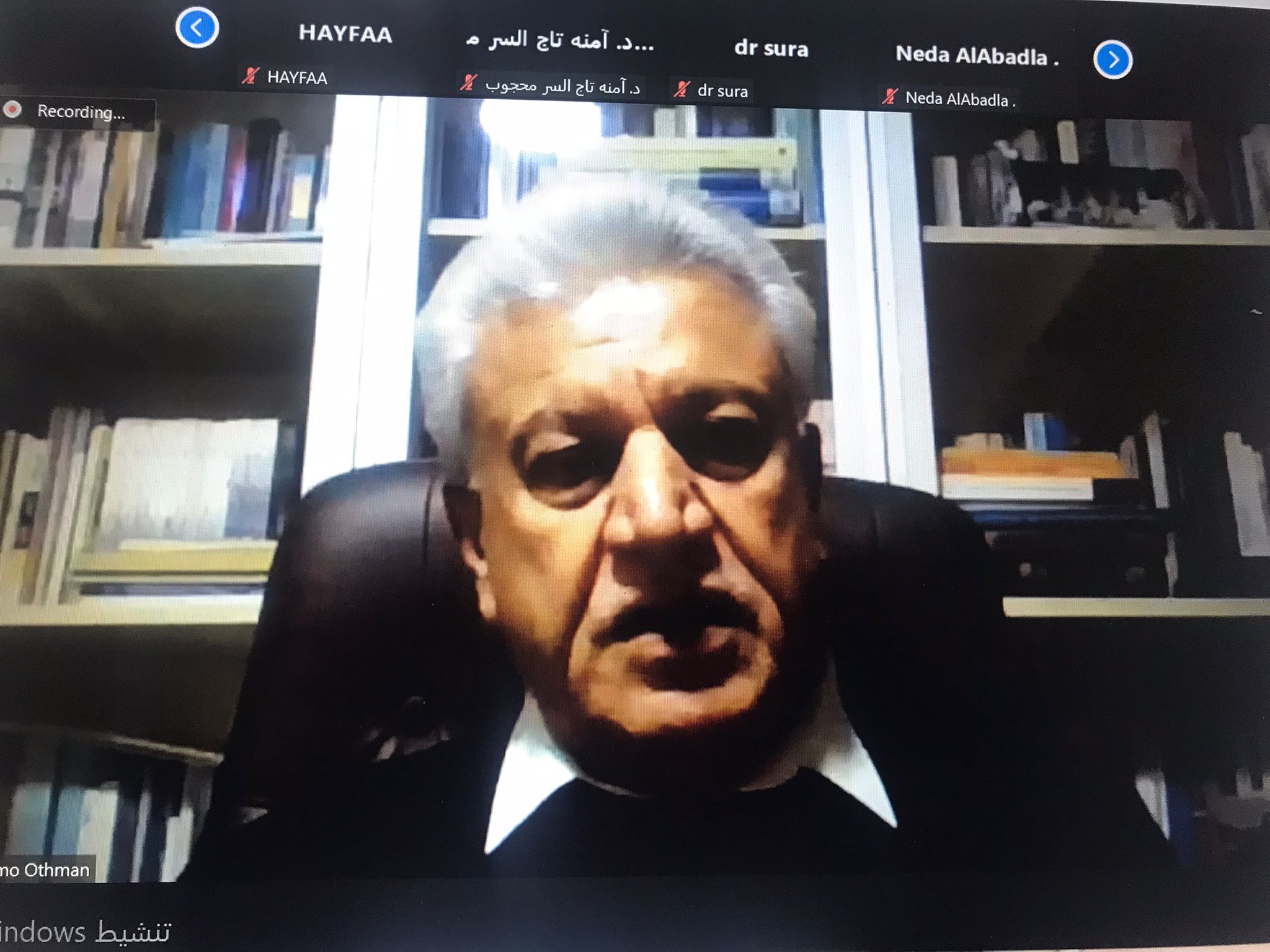

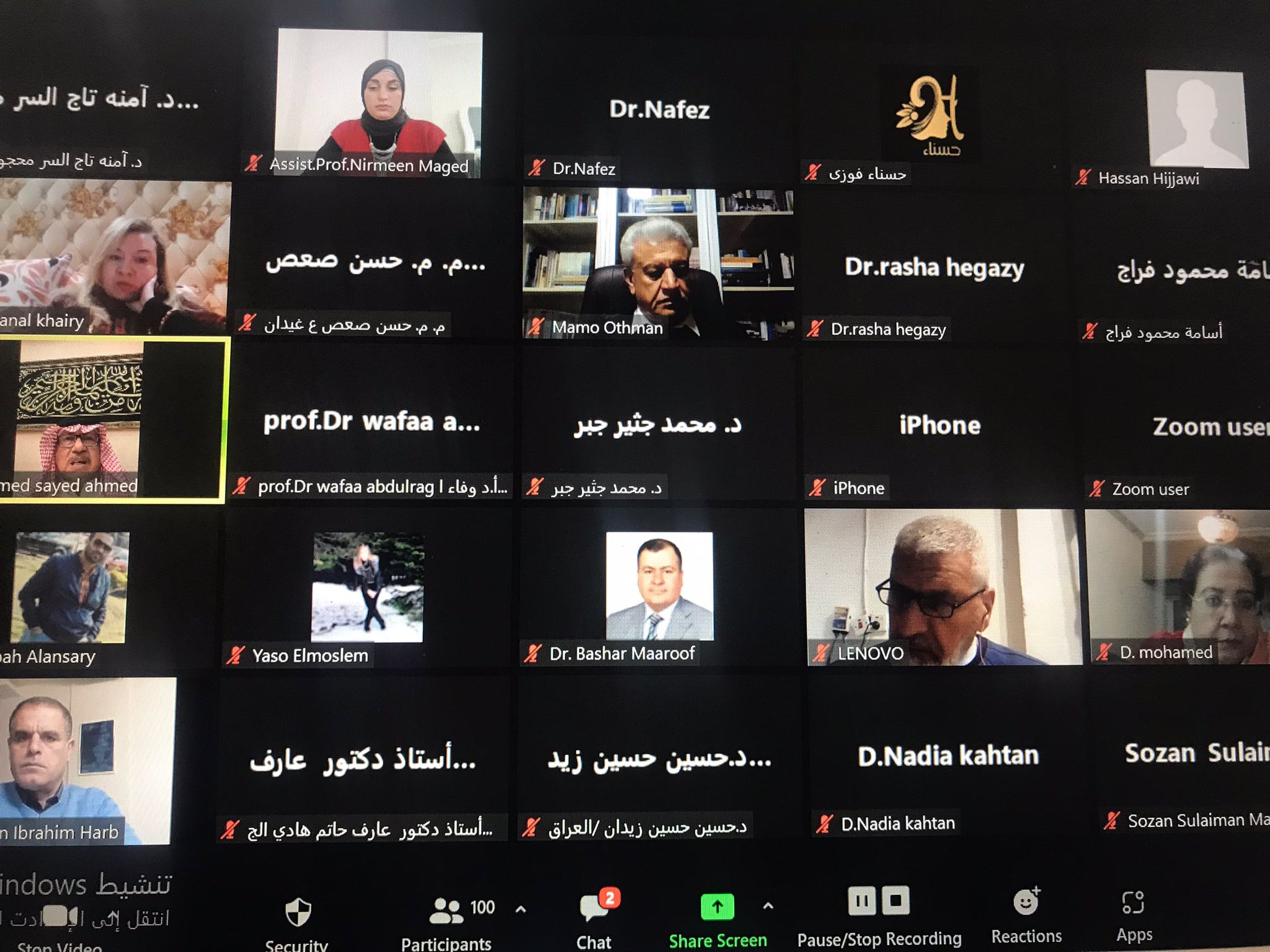

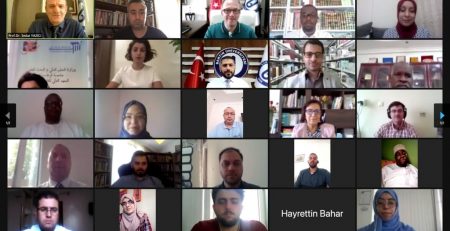




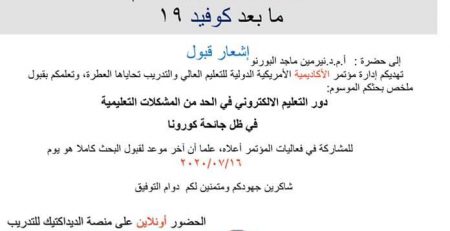



Leave a Reply